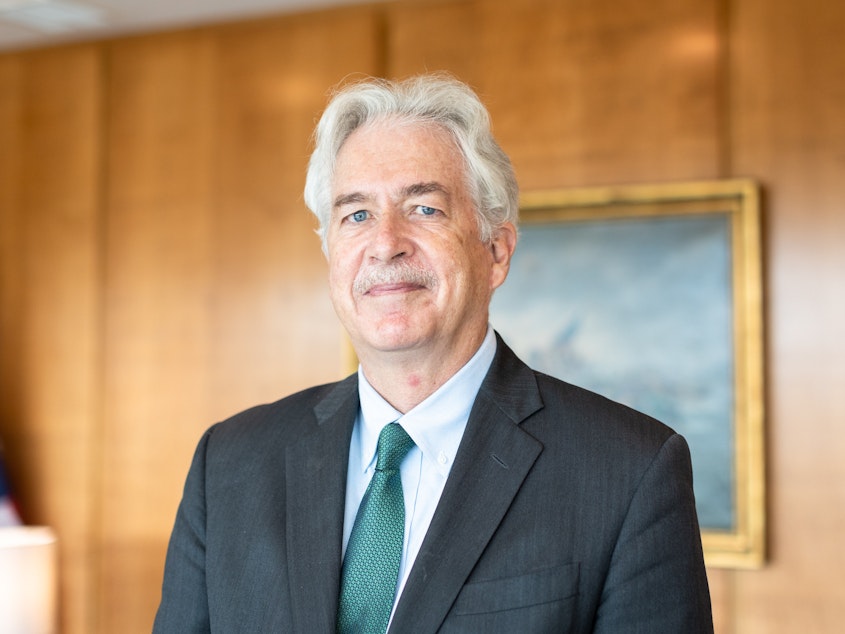CIA Chief Meets Taliban Leader As Taliban Hold Firm Against Extending Deadline

CIA Director William Burns met Taliban leader Mullah Abdul Ghani Baradar in Kabul on Monday, according to a U.S. official familiar with the matter.
Taliban spokesman Zabihullah Mujahid said Tuesday that his group will accept "no extensions" to an Aug. 31 deadline set by President Biden for ending an airlift operation in Kabul, the Associated Press reported.
Updated August 24, 2021 at 10:09 AM ET
The meeting between Burns and Baradar marks the highest level meeting between the Biden administration and the Taliban since the group took over in Afghanistan on Aug. 15.
The CIA declined to comment. There was no word on where in Kabul they met or what they discussed. But the most pressing issue is whether the U.S. airlift operation at the Kabul airport will continue beyond the Aug. 31 deadline.
Sponsored
The president says that's still the goal, but has left open the possibility of extending it. The Taliban say the continued U.S. presence would cross a "red line," and there would be unspecified consequences.
While news of the Burns-Baradar meeting came as a surprise, the U.S. and the Taliban are in regular contact and have a number of issues to work out.
The Pentagon says it is in daily contact with the Taliban at the Kabul airport, where armed Taliban members are effectively performing crowd control at the airport.
The Taliban, meanwhile, were shunned by the international community during their harsh rule of Afghanistan from 1996-2001. They are seeking international legitimacy this time around, though the U.S. and its allies are deeply skeptical that the group has changed its fundamental principles.
Also, Afghanistan's weak economy has been heavily dependent on assistance from the U.S. and other Western countries. A cutoff of this aid could put the country in a downward economic spiral.
Sponsored
The U.S. and Baradar have a history.
A joint CIA-Pakistan operation led to Baradar's capture in Pakistan in 2010. He was released from prison in Pakistan in 2018 and then took part in the U.S.-Taliban negotiations in Doha, Qatar.
In February 2020, the Trump administration and the Taliban signed an agreement that called for all U.S. troops to be out of Afghanistan by May of this year. [Copyright 2021 NPR]
